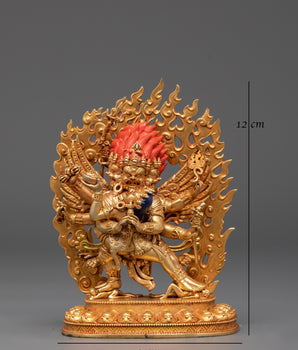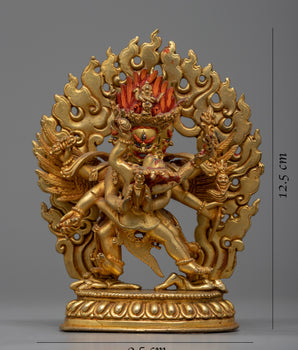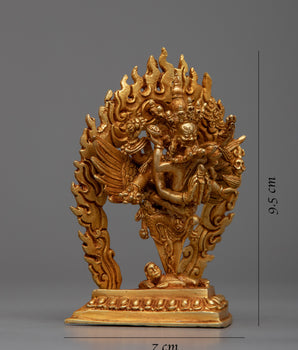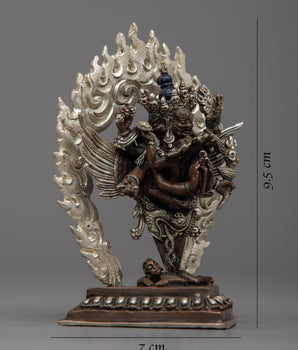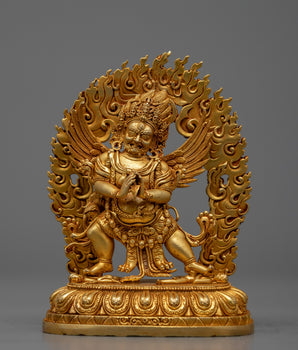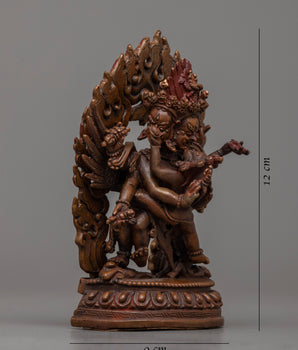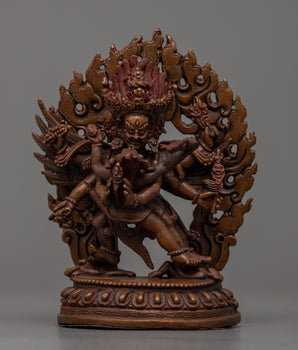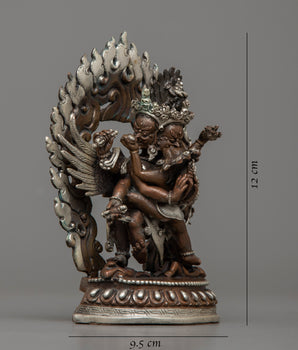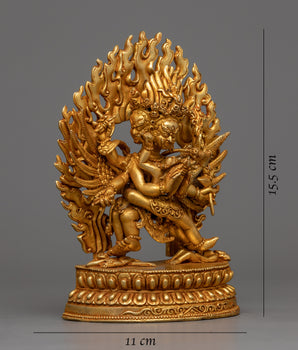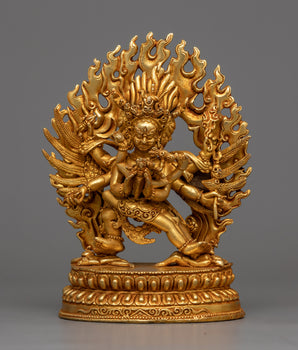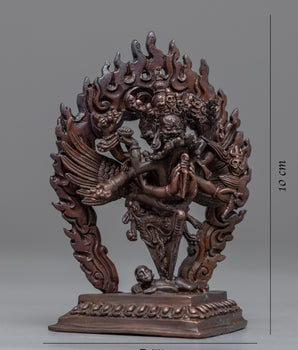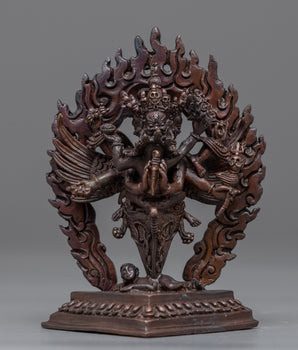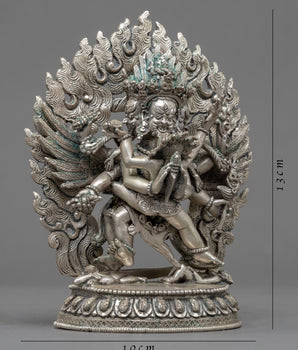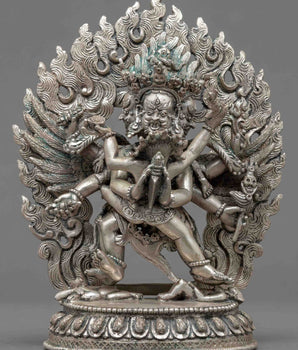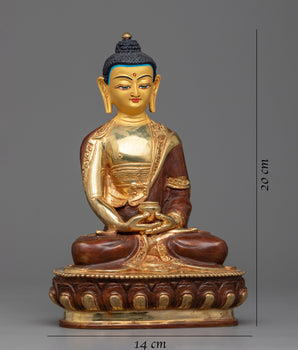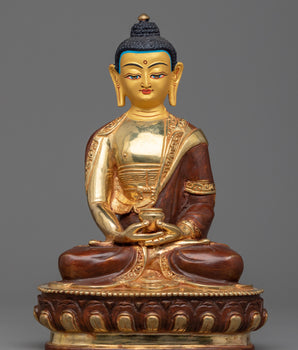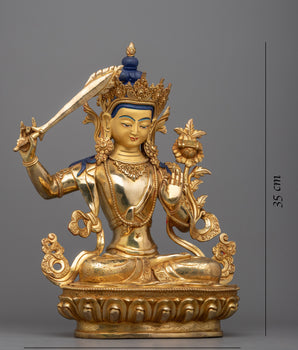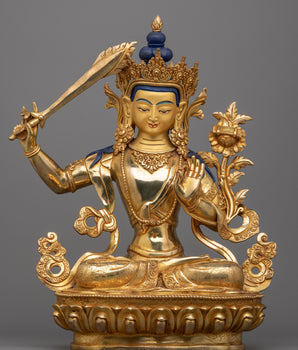Yidam Statue
Yidam: The Personal Meditation Deity in Vajrayana Buddhism
In Vajrayana Buddhism, the term "Yidam" holds fundamental significance, referring to a chosen meditation deity or a focal point for meditation. Originating from the Tibetan language, "Yidam" translates to "mind deity" or "mind support." Yidams play a central role in Vajrayana practice, serving as powerful individual spiritual guides to aid practitioners in realizing their inherent wisdom and enlightenment.
Significance and Purpose:
Yidams are crucial as they catalyze awakening and transformation in Vajrayana practice. Designed to assist practitioners in overcoming obstacles, purifying their minds, and realizing the nature of reality, Yidam practices involve the selection of a deity with whom practitioners resonate. This connection establishes a profound and meaningful relationship that fosters spiritual growth.
Attributes and Iconography:
Yidams manifest in diverse forms, each associated with specific qualities and attributes. The practitioner's choice of yidam is influenced by personal inclination and spiritual goals. Common characteristics include:
- Appearance: Yidams can exhibit various colors, expressions, and attire, ranging from peaceful to wrathful. For instance, Avalokiteshvara, a peaceful yidam, may display a compassionate countenance, while Vajrakilaya, a wrathful yidam, exudes a fierce demeanor.
- Mudras and Implements: Yidams often wield symbolic implements and hand gestures (mudras) representing enlightened qualities and practices, such as vajras, bells, swords, and lotus flowers.
- Consorts: Some yidams are depicted with consorts, symbolizing the union of compassion and wisdom and the integration of masculine and feminine energies.
Associated Practices:
Yidam meditation involves visualizing oneself as the yidam, merging consciousness with the deity. This practice purifies the mind, transforms perceptions, and leads to the realization of one's Buddha nature through profound visualization.
Specific rituals, mantras, and imagery associated with each yidam are transmitted through lineages and empowerments. Qualified teachers typically impart these methods to dedicated students.
Standard practices in yidam meditation include:
- Reciting the deity's mantra.
- Mentally creating a mandala.
- Cultivating a close relationship with the yidam during meditation.
- Practitioners aim to integrate the yidam's presence into daily life by merging meditation with ordinary activities.
In Vajrayana Buddhism, Yidam, the personal meditation deity, plays a crucial role in guiding practitioners towards enlightenment and spiritual realization. Significantly, yidams facilitate mental purification and deepen the practitioner's connection with their chosen deity.
Your cart is currently empty.
Start Shopping



















